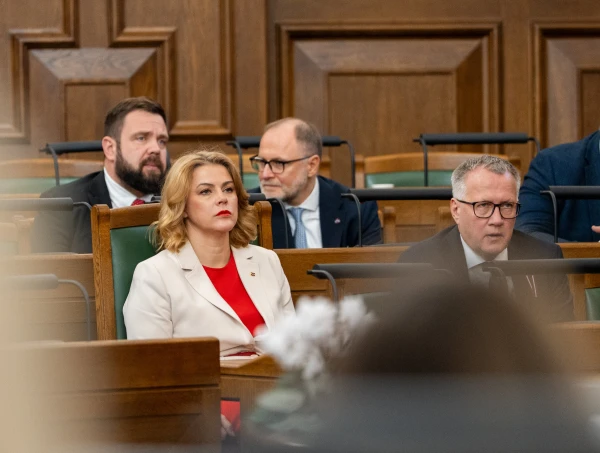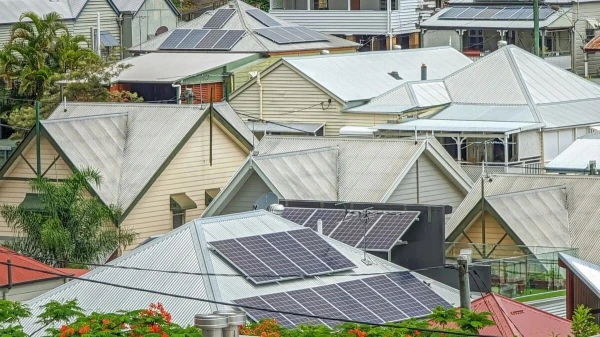
For two days, the deputies of the Saeima debated the project of the main financial law of the country. Ahead is a new series of budget debates.
Whenever you listen to the Saeima debates on the budget, it creates the impression that the deputies are discussing... two completely different documents. The ruling deputies and ministers assure that the budget project presented to the parliament is simply wonderful, the best in recent history. Meanwhile, the opposition claims that they have never seen such a bad budget and that this budget will surely ruin the country.
A Bad Good Budget
It is probably unnecessary to mention that the current debates in the Saeima on the 2026 budget project fit perfectly into the usual role division scheme. "Definitely, the budget for next year provides a strong foundation for a safer future for Latvia, so that we can confirm to society that security, care for families, and economic development are the highest priorities of the state. And I truly believe that families will be able to live in a safe environment," Prime Minister Evika Silina assured from the podium. She reminded that the 2026 budget includes funds for increasing the childbirth and childcare allowances for the first one and a half years of a child's life.
The head of government also pointed out that the coalition has met the partners – the "green farmers" – and is introducing a pilot project from July 1 of next year until the end of June 2027, which provides for a reduced VAT rate of 12% on bread, milk, eggs, and fresh poultry meat.
The proximity of elections prompted the Prime Minister to particularly remind about changes in the pension indexing system: "From October 1, 2025, all pensions up to 1488 euros will be indexed (previously it was a much smaller amount), ensuring that 98 percent of pensions paid in Latvia will be reviewed in fact in full. In my opinion, this is respect for seniors, it is the foundation of a cohesive society and statehood.
Evika Silina did not forget to emphasize that overall taxes have not been raised.
Five Tasks of the Main Financial Law
In turn, Finance Minister Arvils Aseradens told the deputies that the government, while drafting the budget, set five strategic goals: "First. To find a way to finance the priorities set by the government – defense and internal security of the country, demographics, and investments in the quality of education.
Moreover, the government aimed not to raise basic taxes.
Additionally, the government set the goal of optimizing public sector spending while drafting the budget.
Furthermore, the government aimed to increase the income of the population and ensure fiscal sustainability in budget planning.
The budget that the Saeima will consider today in the first reading is prepared with state responsibility, fiscally balanced, and aimed at the security of our future."
At the same time, the finance minister honestly admitted that the national debt is growing and will continue to grow: "The national debt will increase from 47 percent of GDP in 2024 to 51 percent in 2026. This trend will continue throughout the entire period of the EU's exceptional clause, until 2028 inclusive, when the debt level is projected to be 55 percent of GDP, which corresponds to the debt level adopted by the government. To prevent the growth of debt, the government has set the goal of moving towards reducing the deficit to 1.5 percent of GDP when the period of the exceptional clause ends."
Let’s clarify: the exceptional clause is a kind of permission from Brussels for EU member states not to comply with the maximum allowable budget deficit regarding funds allocated for defense and security. In simple terms, if the state borrows money for defense, it can exceed the allowable three percent budget deficit with that money.
Bitter Truth from the Opposition
However, the opposition was not impressed by all these explanations. Many opposition parliamentarians harshly criticized the government for this "living on credit," for the rapid accumulation of national debt. A deputy from the United List, Aiva Viksna, even predicted financial bankruptcy for the country if the pace of national debt growth remains the same.
"In fact, we need to call things by their real names, that is, the ruling coalition has laid out a budget that leads down the road to the bankruptcy of the country. This statement of mine is not the usual rhetoric of the opposition. Moreover, it is not related to the election period, as the current representatives of the ineffective government will surely try to present it. This assertion is based on data analysis and real budget figures...
What is the main factor that allows such a sharp conclusion? The most important thing is the growth of national debt and the government's inability to justify the appropriateness of such borrowing orgies. In 2026, the national debt is planned to increase to 51 percent of GDP, in 2028 it will be 55, and by 2029 it will be almost 60 percent of GDP.
To help the residents of Latvia better understand what lies behind these numbers, I will provide just one calculation. In the mentioned 2028, every child born in Latvia will already come into the world with a debt burden of almost 15,000 euros, which they will have to repay in the future, regardless of their occupation or political sympathies. This is the future that the current ruling coalition has predicted for our yet unborn child," Aiva Viksna warned.
Not enough for medicine again...
A number of opposition parliamentarians warned about a crisis in the healthcare system due to acute funding shortages. The people's representatives reminded that the Ministry of Health itself requested an additional 100 million euros but received only 35 million. The healthcare workers' union insisted on even larger allocations – about 133 million euros. The Saeima's budget and finance commission called on the government to find an additional 22 million next year (presumably from unforeseen expenses) to at least not reduce the current level of medical services.
Just Really Wanted to Talk...
It should be noted that the Saeima debates on the adoption of the 2026 budget in the first reading, that is, conceptually, lasted two days! At the same time, the people's representatives were well aware that these debates had little meaning, as the budget project could only be changed at the second reading stage, that is, when specific amendments are considered. Right now, the deputies were simply stating their position and, considering the upcoming elections, reminding of themselves.
The main intrigue in the context of adopting the 2026 budget is whether the "green farmers," playing the role of internal opposition in the government, will dare to make any radical changes to the budget project. The final reading of the budget is planned for the first days of December.
















Leave a comment